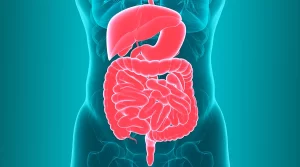Finding Your Basal Metabolic Rate (BMR)
 The more accurate calculation for those of average health is the Harris-Benedict equation. These calculations are done using metrics. Conversions will be at the bottom of the page.
The more accurate calculation for those of average health is the Harris-Benedict equation. These calculations are done using metrics. Conversions will be at the bottom of the page.
- Men: BMR = 66.5 + (13.75 * weight in kg) + (5.003 * height in cm) – (6.75 * age)
- Women: BMR = 655.1 + (9.563 * weight in kg) + (1.850 * height in cm) – (4.676 * age)
Physical Activity
Once you find your BMR by using the in-body scan multiply an energy factor to get your daily energy expenditure.
- Sedentary= 1.2 (10% protein intake)
- Moderate activity= 1.375, 1-3 days/week light exercise (15-20% protein intake)
- Active= 1.55, 6-7, days/week moderate exercise (20-25% protein intake)
- Very active= 1.725, hard exercise every day (25-30% protein intake)
- Extra Active= 1.9, hard exercise 2 or more times a day (30-35% protein intake)
Finding Protein Intake
Protein should make up 10-35% of your daily intake. Utilize the guide above to determine protein percentage. When you have your percentage all you have to do is multiply that by your daily energy expenditure, then divide by 4.
For example, if I use 25%: 2,000 calories x .25= 500 calories/4= 125 grams of protein
- kg= Weight in lbs divided by 2.2
- cm= height in inches times 2.45
Why Do We Need Pre & Probiotics?
The gut is an incredibly complex system made up of a microbiome that helps facilitate digestion, and communicate with the rest of your body and can either hurt or help digestion depending on how well you take care of it. The term gut microbiome refers to the microorganisms in your intestines. These microorganisms come from and feed off of the foods that you eat. Among other areas, most microorganisms come from probiotics, which are living organisms that are found in food. For example kombucha, fermented tea is a probiotic which can provide your gut with these microorganisms. These microorganisms can then help facilitate the digestion of nutrients or the creation of vitamins like many of your B vitamins. Prebiotics are foods that help feed these microorganisms to allow them to produce the nutrients that we need to function optimally. Eating fibrous foods like vegetables is a great food source for these organisms. We cannot digest fiber, so gut bacteria help us use and get rid of the fiber we get from plant-based sources. Another great reason to get in your vegetables at each meal.
Gut-Brain Axis
Your body is connected by a complex system of nerves, and these nerves are always communicating with each other. Research is showing how our microbiome helps facilitate various emotional and physical interactions with our brain like stress, inflammation, anxiety, or depression. This is one of the many reasons why it is important to maintain a healthy gut microbiome.
Where to get pre & probiotics
The good thing about feeding your gut is that there are many great sources of pre and probiotics that can help you feed and maintain a healthy gut. Some great sources of probiotics are fermented foods like kimchi, kombucha, sauerkraut, yogurt, and Keifer. These foods have a wide arrange of microorganisms that can be beneficial to your gut and can help you keep a healthy colony of good bacteria. Sources of prebiotics are your fruits and vegetables. Foods high in fiber provide your gut microbes with a source of food that can help them produce nutrients and even help produce some hormones. Any food you eat can help feed your gut, but the more whole foods you eat the more beneficial gut bacteria you will get. Having a diet that is higher in processed and sugary foods will minimize the number of microbes you will get which can hinder your body’s ability to keep producing the nutrients your body needs. A lack of biodiversity in your gut may also lead to increased inflammation because it is not able to regulate your body’s inflammation response due to internal or external factors.
Conclusion
Maintaining a healthy gut is crucial to maintaining a healthy lifestyle. Having a healthy microbiome will help your metabolism, and emotional health and even maintain a healthy weight. Feeding your gut with healthy whole foods and reducing your intake of processes foods is key in keeping your gut happy.
